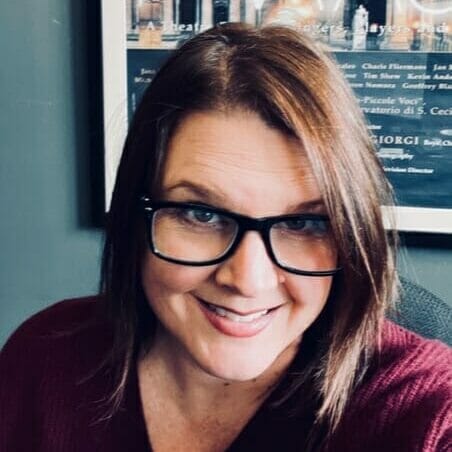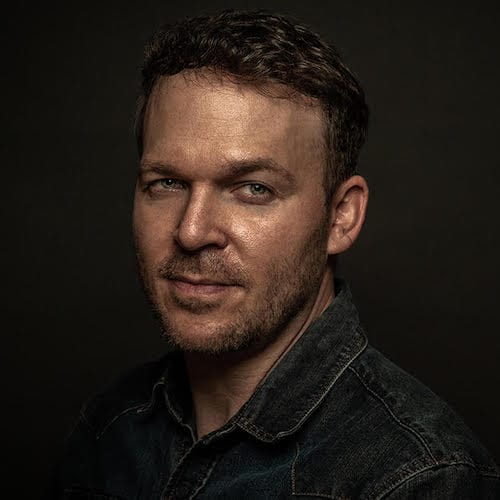[special_heading title=”God Within” subtitle=”by Tim Mooney” separator=”yes”]The days are surely coming, says the Lord, when I will make a new covenant with the house of Israel and the house of Judah. It will not be like the covenant that I made with their ancestors when I took them by the hand to bring them out of the land of Egypt – a covenant that they broke, though I was their master, says the Lord. But this is the covenant that I will make with the house of Israel after those days, says the Lord: I will put my law within them, and I will write it on their hearts; and I will be their God, and they shall be my people. No longer shall they teach one another, or say to each other, “Know the Lord,” for they shall all know me, from the least of them to the greatest, says the Lord; for I will forgive their iniquity, and remember their sin no more.
Twenty years ago I joined my father at a men’s breakfast at a local restaurant. A man in the church, a professor of agriculture and international consultant on seed germination, gave the talk that morning. He drew a crowd. This was Atwater, CA after all. 25% of the men in the church owned farms. These men knew seed. I was a pastor – what did I know about seed? I went, mostly to spend time with Dad, and get a good heart-attack-on-a-plate breakfast. I was not looking forward to the seed talk.
The seed expert rose to his feet and in a monotone voice read John 12:20-24, about seed falling into the ground and dying. Now among those who went up to worship at the festival were some Greeks. They came to Philip, who was from Bethsaida in Galilee, and said to him, “Sir, we wish to see Jesus.” Philip went and told Andrew; then Andrew and Philip went and told Jesus. Jesus answered them, “The hour has come for the Son of Man to be glorified. Very truly, I tell you, unless a grain of wheat falls into the earth and dies, it remains just a single grain; but if it dies, it bears much fruit.” I turned to the waitress and begged for more coffee.
Then the seed expert said, “I think Jesus got it wrong about the seed dying.” He proceeded then, in a spellbinding monotone voice, to unravel the secret of seeds. Seeds have a fine-tuned evolutionary wisdom. They will not germinate unless the right amount of water and nutrients are present in the soil to sustain life. Each seed has a protective coating, washed off only by the right amount of water and nutrients. If there isn’t enough, the seed will wait, sometimes for years, to germinate. The seed expert then said, “Seeds don’t die officially. Yes, they get buried in the ground before they ‘come to life’ which is perhaps what Jesus meant by his metaphor. But what the seeds really do is let go of their protective coating. When they have the right nutrients, the protective coating is washed off, and the life that is already within emerges.”
Jesus invites us to let go of the protective coating. That letting go feels like dying. But when we let it go, we trust God’s love around us, and we trust God’s life within us. Jeremiah put it this way: God’s laws are written on our hearts – they are already here! Jesus spoke of this inner life of God as the Kingdom of God in our midst, or as a stream of living water welling up from within.
The water and nutrients that washes off our protective coating, is the acceptance and love of God, the love we give to and see in one another, and the belief that deep inside us are the ways of God written on our hearts.
During the sacrament of baptism, we receive a symbolic washing in water that first of all tells us we are God’s beloved children. This is the deepest truth about us. Baptism is a symbol for the many ways we will be washed with God’s love, over and over, that helps us let go of the protective covering of our egos, and trust that the life of God within us will emerge through all the transitions we go through in life.
Transitions are important times for our continued emerging, but it’s in the transitional times that we feel most vulnerable. Like a snake, which has outgrown an old skin and can wear it no longer, we shed what is no longer fitting. But thus exposed, we are in a state of crisis; we feel soft and unprotected and unsure of a future “skin” that is still unknown to us. In transitions we are tempted to turn back to our old ways; these are at least warm and familiar to us, because the new is frightening and unfamiliar. But we cannot put back on an old skin we have shed; it won’t hold.
Every time a snake sheds its skin, it lets go of a protective coat that once served well, but no longer. And the new skin does not come from outside the snake, it comes from the very life it has within. God’s laws written on our hearts, Christ’s life welling up within us like a stream of living water, can be trusted to see us through the changes.
An anonymous woman wrote a poem that reflects the many transitions she went through, the many ways the life within her emerged but eventually had to be shed in order to keep allowing God’s life within her, the Christ-seed, to bear more fruit.
I will show you the skins I have shed
Left in the grass as I crept away
They are proof that I have lived.
Skin one: docile child
Skin two: obedient adolescent
Skin three: scholar masked in niceness
Skin four: stunning career girl
Skin five: charming child-mistress
Skin six: loving wife
Skin seven: marvelous mother
Skin eight: admirable Christian
Skin nine: heroic savior of abandoned children
Skin ten: nervous breakdown
Skinned alive!
Snakes shedding skins, seeds shedding protective coatings, all in order to set free the life within, a life that God has written on your hearts. But we have such trouble trusting this life of God within us. We have trouble seeing it, seeing who we really are. Here’s a story of how we can help each other see what is written on our hearts.[callout_box title=”Jesus invites us to let go of the protective coating. That letting go feels like dying. But when we let it go, we trust God’s love around us, and we trust God’s life within us.” subtitle=””]Sister Helen Mrosla was a 3rd grade teacher in Minnesota. One of her students, Mark Eklund, was bright, mischievous, happy-to-be-alive, and very, very talkative. She had to remind him over and over: “Talking without permission is unacceptable, Mark.” Mark would always respond, “Thank you for correcting me, Sister.” One day Mark spoke out once too often, and Sister Helen said, “Mark, if you say one more thing I’m going to tape your mouth shut!” Not a minute later, Mark erupts with more words. She had to follow through. Without a word she walked up to Mark and ducked-tapped his mouth shut and sat back down. The class was silent. She looked up, and Mark winked at her. Sister Helen burst out laughing, the class laughed, and she took the tape off. “Thank you for correcting me, Sister.”
Sister Helen was asked to teach 9th grade math. Years went by, and Mark was in her class again. Handsome, polite, and not quite as talkative as he was before. One Friday the class got frustrated and tension built. She had to do something. She asked the class to take out a sheet of paper or two and write everyone’s name in columns down the left side. Sister Helen said, “Now, write down something you really appreciate, like, and see in each person in our class.” The class grew quiet, and the hour passed. On the way out Mark said, “Thanks for teaching me, Sister. Have a nice weekend.”
Over the weekend, Sister Helen collated all the things said for each individual student. On Monday morning she gave the lists to the students. Smiles erupted around the classroom. She heard whispers: “I didn’t know they felt that way about me.” Sister Helen then asked them to open their math books. Time to get back to work. No one mentioned the lists.
Years later Sister Helen returned to Minnesota. Her parents picked her up and told her the bad news. Mark had been killed in Vietnam. At the viewing, Sister Helen looked at Mark and thought, “I’d give all the tape in the world just to have you talk to me again.”
At the reception, Mark’s parents were waiting for Sister Helen. “We want to show you something. They found this on Mark when he was killed. We thought you might recognize it.” Opening a worn and tattered wallet, Mark’s father carefully removed two worn pieces of paper that had been taped and folded many times. “Thank you so much for doing that,” they said. “As you can see, Mark treasured it.” Mark’s classmates began to gather around. Charlie said, “I still have my list. It’s in the top drawer of my desk at home.” Another said he had his wife put his in their wedding album. “I have mine too,” said Marilyn, “It’s in my diary.” Then Vicki pulled hers out of her pocketbook. “I carry it with me at all times. I think we all saved our lists.”
That’s when Sister Helen sat down and cried. It’s not hard to imagine a young soldier named Mark, about to go on a military excursion, unfolding his list, to be reminded of who he is, of what is written on his heart.
I think at times we can become like that 9th grade class. We can get frustrated by where we are in the process, on our journey. We’re not getting it right, something is amiss, we seem stuck, we are not learning the lessons. It seems like we’ve been in that space for over a year now. And we can begin to take it out on ourselves, and on one another. So it’s good to be reminded every once in a while, who we really are; to know what is written here, on our hearts. To see Christ within, to give love and acceptance to each other, to focus on the good and the gift in each other, is what washes off the protective coating, so that we germinate and produce life.
The poem I read earlier ends with a phrase that we normally associate with pain and suffering: skinned alive! But the poem suggests that only as these various layers of protection and identity were washed away did she live more closely to the real life within her, constantly emerging, God’s life within her, God within. It’s there in every one of us. Amen.





